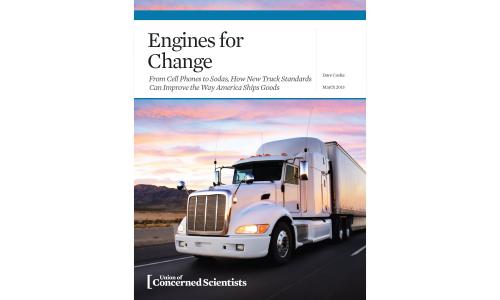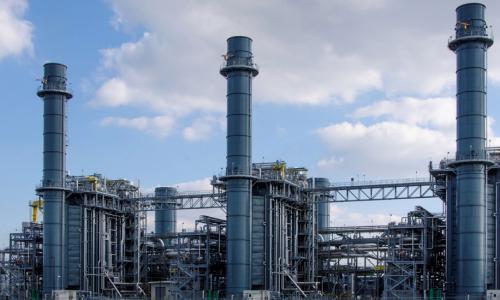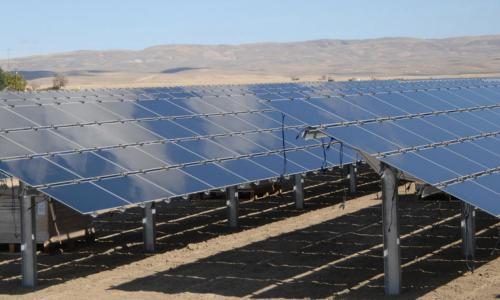All reports
Report

Confronting Climate Change in Washington
Global warming represents a severe challenge to Washington's way of life. But this challenge can be met if residents, businesses, and policy makers act swiftly.
Report

Grading Government Transparency
Two years after UCS evaluated the media and social media policies at 17 federal agencies, a new analysis finds progress—but much work remains to be done.
Report

Engines for Change
New standards for heavy-duty trucks could help Walmart, UPS, Coca-Cola, and other major companies use far less fuel—with major benefits for consumers and the climate.
Report

The NRC and Nuclear Power Safety in 2014
Despite an improving safety record, the NRC has improperly withheld safety-related information and unfairly punished whistleblowers, harming the agency’s credibility.
Report

No More Fukushimas; No More Fort Calhouns
Fort Calhoun nuclear power plant was shut down in April 2011 for a routine refueling outage when workers found dozens of serious safety shortcomings.
Report

The Natural Gas Gamble
Dramatically expanding the use of natural gas to generate electricity creates numerous and complex risks for our economy, our health, and our climate.
Report

Palm Oil Scorecard 2015
2014 was a year of progress—so why are so many of the country's's biggest brands still using palm oil that contributes to deforestation and peatland destruction?
Report

Renewables, Reliability, and Solutions for California's Clean Energy Future
Renewable energy can supply half of California's electricity by 2030. Technologies and improved grid practices are available today to ensure a cost-effective, reliable electricity supply.
Report

Stormy Seas, Rising Risks
As climate impacts grow more severe, oil refineries face increasing risk. Fossil fuel companies need to disclose these risks to shareholders and the public.
Report

Lessons from the Lunchroom
School lunch programs are helping kids eat healthier—so strengthening these programs is a smart investment.
Report

Healthy School Meals, Healthy Children
The Healthy, Hunger-Free Kids Act of 2010 was a big step in the right direction—and it's now up for renewal. With kids' health at stake, Congress needs to keep moving forward.
Report

Clean Fuels for Washington
A strong clean fuels standard would help cut Washington’s carbon emissions and establish the state as a transportation leader.